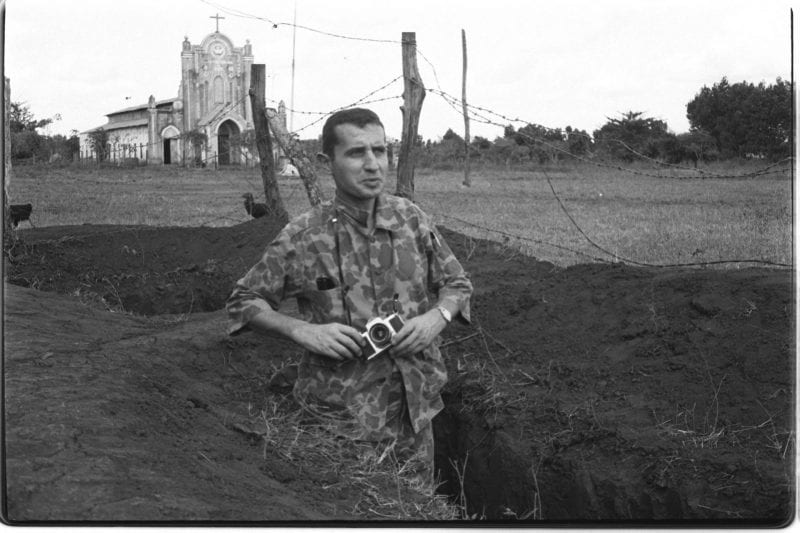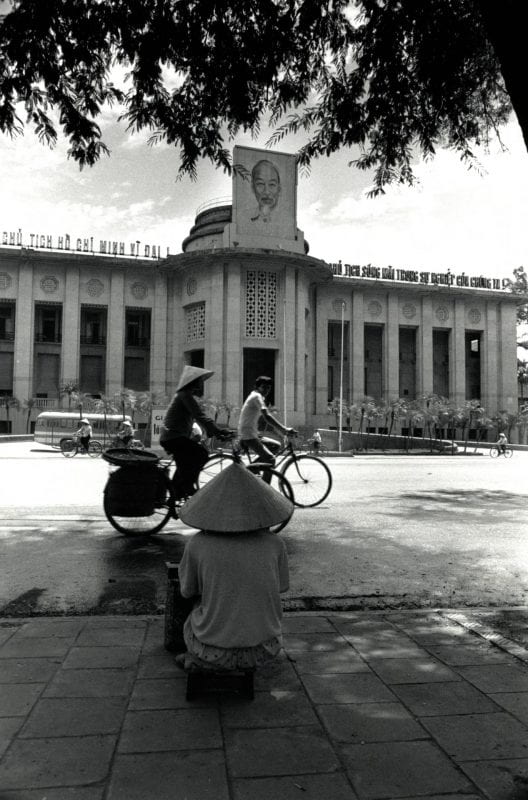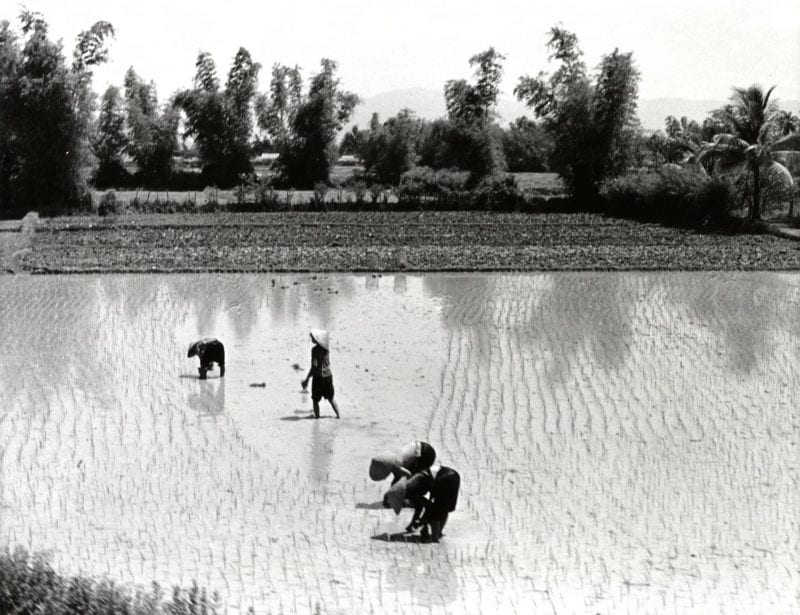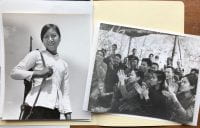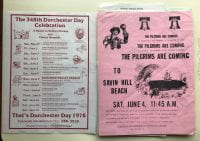Author: Alyssa Tkach, Archives Assistant
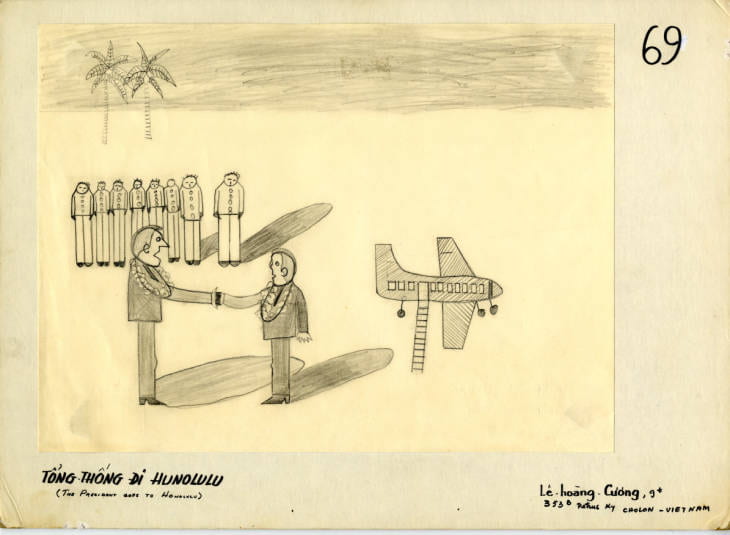
“Tong Thong Di Honolulu (The President Goes to Honolulu),” created by Le hoang Cuong in 1966 in Cholon, Vietnam, 12 x 16 in.
University Archives and Special Collections holds a collection of eighteen children’s drawings that document life in Vietnam in the 1960s. The drawings were made possible by various world peace organizations and activists, including the American Friends Service Committee, the Committee of Responsibility, and Le van Khoa.

“Batman,” created by Vo Phuc Hai in 1966 in Cholon, Vietnam, 12 x 16 in.
These drawings were created by Vietnamese children around 1966 as resource materials for the American Friends Service Committee (AFSC). The AFSC is a Quaker organization that was formed in 1917 by the Religious Society of Friends in order to aid civilians who were affected by World War I. In the 1960s, they helped build anti-war coalitions to challenge U.S. policy in Vietnam (1). Today, they continue to work to improve racial relations around the globe, advocating for social justice and peace.
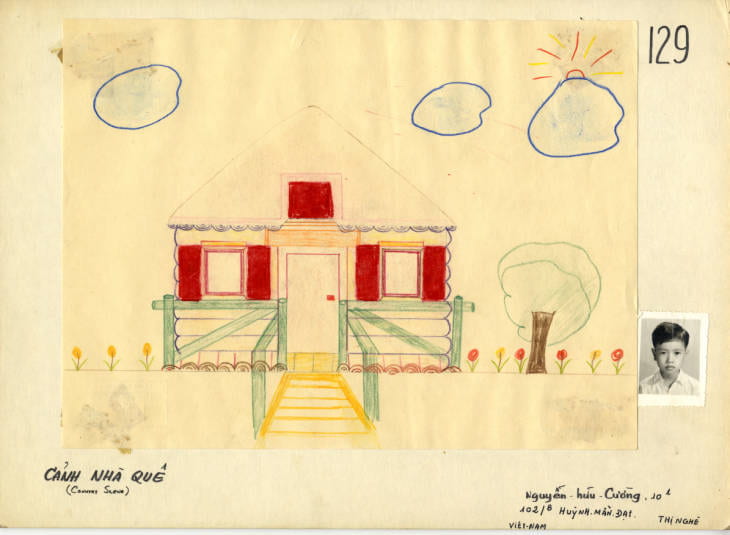
“Canh Nha Que (Country Scene),” created by Nguyen Huu Cuong in 1966 in Thi Nghe, Vietnam, 12 x 16 in.
Le van Khoa is a music composer, photographer, and educator who arrived in the United States from Vietnam in May 1975 as a war refugee (2). He was born to a working-class family on June 10, 1933, in Can-Tho, a city in the Mekong Delta region of southern Vietnam. As a child, Le van Khoa taught himself how to read and play music, which ultimately led him to win an award at age nineteen for two songs he had composed and submitted to a national music contest (2).
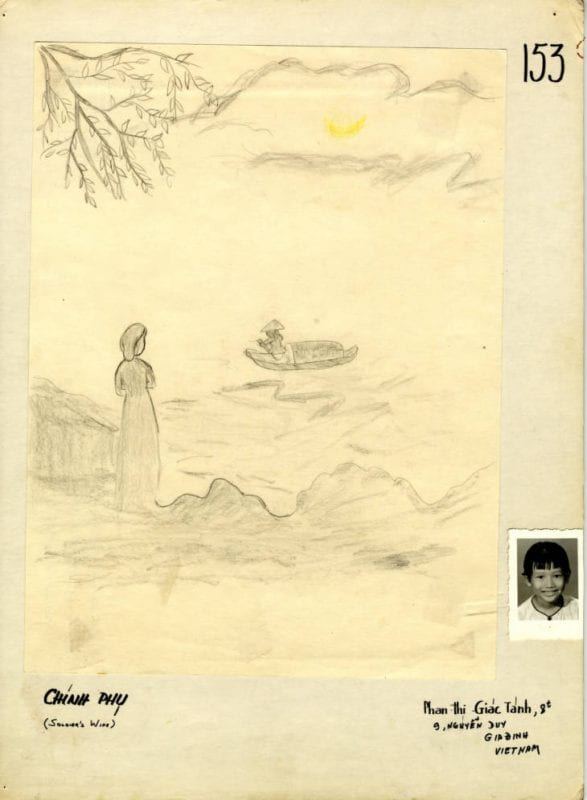
“Chinh Phu (Soldier’s Wife),” created by Vu thi Bich Tram in 1966 in Gia Dinh, Vietnam, 12 x 16 in.
Le van Khoa’s success earned him a job as a host for a children’s television show, World of Children (2). In addition to his passion for music, Le van Khoa is a renowned photographer who co-founded the Artistic Photography Association of Vietnam and published three books (3). The Special Collections and University Archives department at the University of Massachusetts Amherst is home to a small collection of his photographs, which focus on life in Vietnam (3). The drawings were submitted to a contest that Le van Khoa sponsored in connection with World of Children, and he later donated the drawings to the Committee of Responsibility in an effort to help raise funds for Vietnam (4).
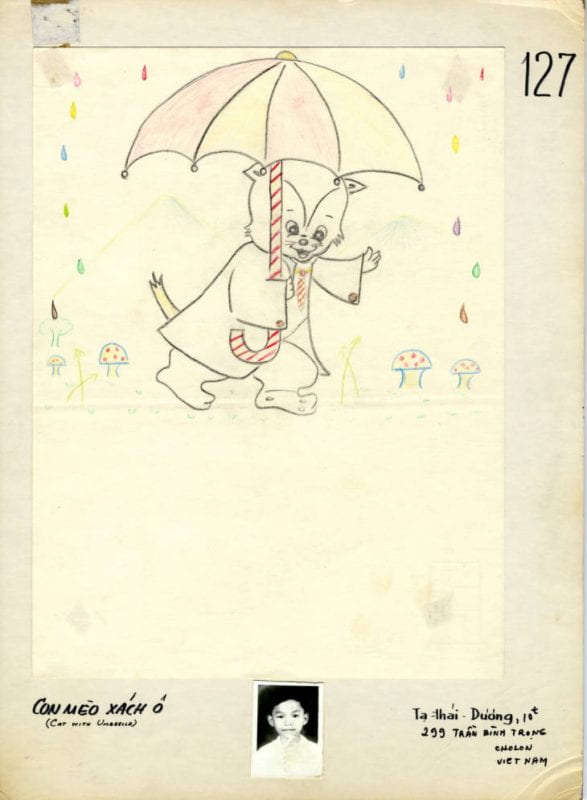
“Con Meo Xach O (Cat With Umbrella),” created by Ta thai Duong in 1966 in Cholon, Vietnam, 12 x 16 in.
The Committee of Responsibility (COR) was formed in 1966 by medical personnel, scientists, religious leaders, and other conscious citizens to assist Vietnamese children under the age of sixteen. The Committee provided medical assistance by bringing children to the United States for various treatments and rehabilitation. Around 100 children were treated by this program, and after completing their treatment, nearly all of them returned to Vietnam (5).
These images range from lighthearted cartoon characters and nature scenes to emotional depictions of soldiers and war. The drawings contextualize the impact of the Vietnam War from a Vietnamese perspective; researchers who study the residual effects of war on civilians and children will find this collection to be particularly valuable.
References and further reading
1. “Vietnam Summer,” American Friends Service Committee, accessed April 23, 2020, https://www.afsc.org/vietnamsummer.
2. “Le Van Khoa Collection,” UMass Amherst Libraries Special Collections and University Archives, accessed April 23, 2020, http://findingaids.library.umass.edu/ead/mums170.
3. “Le Van Khoa Photograph Collection,” UMass Amherst Libraries Special Collections and University Archives, accessed April 23, 2020, http://scua.library.umass.edu/umarmot/vietnam/.
4. “American Friends Service Committee, Vietnam Curriculum Project: children’s drawings and resource materials, 1954-1977, bulk 1963-1976,” UMass Boston Digital Collections, Joseph P. Healey Library, accessed April 23, 2020, https://openarchives.umb.edu/digital/collection/p15774coll8/id/135/rec/1.
5. “Committee of Responsibility Records, 1966-1978,” Swarthmore College Peace Collection, last modified February 9, 2018, https://www.swarthmore.edu/library/peace/DG151-175/DG173COR.htm.
